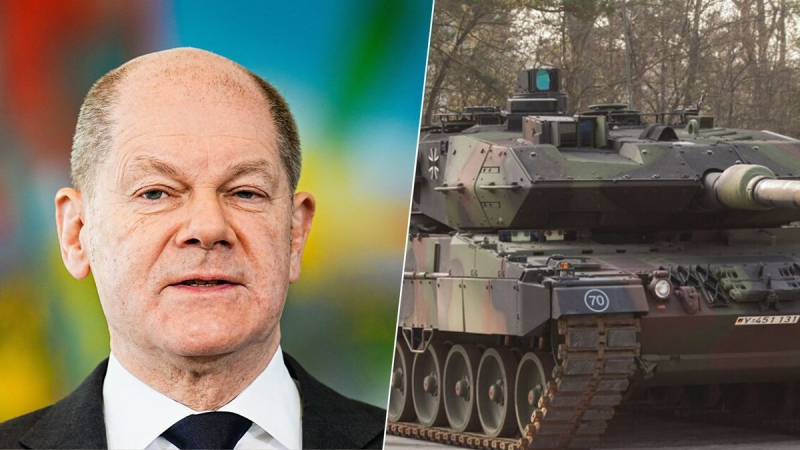
Author
Suren Petrosyan
Unfortunately, the German political machine doesn't always work so well, as a locally produced car, but we can state that the engine has started to stall and now it is only necessary to gain momentum. Read more in the exclusive blog for Channel 24 website.
Germany has finally stepped up
Finally, a fundamental decision has been made on the supply of tanks, and the German side is taking steps to effectively lead the “leopard coalition”.
An important circumstance is that, in addition to 14 units of new models Leopard 2A6, the German government approved the delivery of older modifications of the Leopard 1. Is this step important? Together with Denmark and the Netherlands, the German partners will be able to provide us with more than 100 serviceable units.
Although the indicated number does not yet reach 300 tanks, which the Armed Forces of Ukraine tentatively need to more quickly achieve the goals of breaking through the southern corridor and liberating the Kherson and Zaporozhye regions, the trend is undoubtedly positive.
However, this is not the last important news. According to preliminary information, the German concern Rheinmental is considering the possibility of opening production in Ukraine. In addition, discussions are underway about the possibility of testing a new model of the German-made Pantera KF51 tank in Ukrainian military realities.
How Germany benefits from helping Ukraine
Of course, the opening of the plant is a prospect of the post-war future, and one newest tank will not change the course of the war, but why is this news decisive?
- Firstly, the German side is already talking about the practical aspects of a potential transfer of production capacities to Ukraine. Each such initiative is an important legacy in Ukraine's future recovery plan.
- Secondly, the German military-industrial complex understands that thanks to the successful manifestation of its capabilities in Ukraine, it is possible to become competitive in the international arms market. When the Americans and Koreans are gradually “pulling” potential customers from European countries over to their side, it is especially important for the Germans to demonstrate their own ability and not lose export routes.
It is important to note that during their stay in Germany and communication with former colleagues of the current Minister of Foreign Affairs Boris Pistorius (German Defense Minister – Channel 24) speaks from a pro-Ukrainian position. Speculation about his vision of a pragmatic dialogue with Russia is long gone. He, like most representatives of the Social Democrats, has long been convinced that a peaceful Europe is possible thanks to the Ukrainian victory in the war.
Let's hope that the German car will pick up pace, and Pistorius will act as a skillful “co-pilot” guiding Olaf Scholz to the right strategic decisions.

